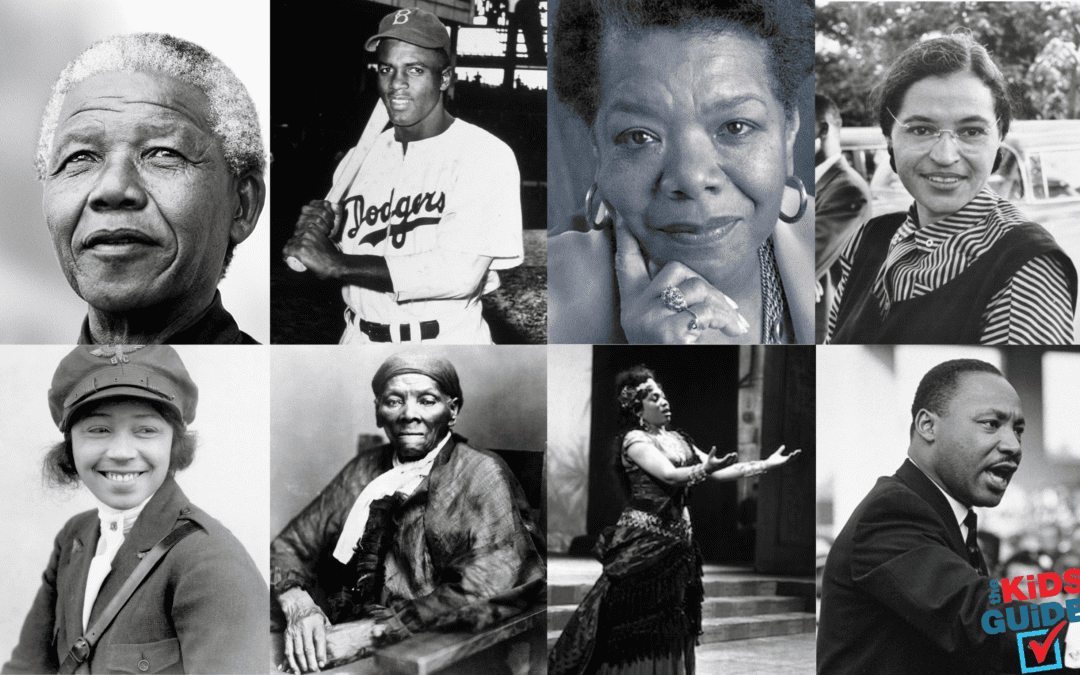February has arrived, and so has Black History Month, a special time to recognize and celebrate the great achievements of African Americans throughout our history. This is an opportune time to have meaningful conversations with your children and instill a sense of understanding of the incredible progress African Americans in the United States have made.
After all, you have an incredible opportunity to ignite within future generations compassion and inspiration that will last long beyond this month.
5 Ways to Celebrate Black History Month with Your Kids
1. Create your own freedom posters centered around the civil rights movement.
Creating your own freedom posters centered around the civil rights movement is a great way to teach your kids how far the movement has come. Talk to them about what kind of freedom was being sought during this time and reflect on how much has been achieved. Working together as a family to make these creative visuals will help your children learn key facts, quotes, and images associated with the civil rights movement.
Not only that, but this fun and interactive activity can also spark meaningful conversations and inspire your children to stand up for everyone to be treated equally. And be sure that when your kids complete their creations, hang them up proudly!
2. Study influential African Americans based on your child’s own interests.
While exploring the heroes of influential African Americans to study in honor of Black History Month, why not tailor it to your child’s interests? By kindergarten, most children have already heard of the iconic Dr. Martin Luther King, Jr. as an advocate for peace and equality, so consider going beyond Dr. King. By choosing someone who aligns specifically with your child’s interests, you can teach your children not only to show appreciation for these influential African Americans, but you will also help them make connections that will help shape their own goals throughout life.
Sports fans may find inspiration from role models like Jackie Robinson, the first African American Major League Baseball player whose play was significant moment. Kids who have an interest in aviation may love learning about Bessie Coleman, the first African American woman aviator— something that wasn’t even possible for many women of any race at that time! These are just to name a few, but there are countless figures of inspiration to fit in with every interest!
3. Don’t be afraid to talk about hard topics.
When teaching your kids about Black History Month, don’t shy away from difficult truths. These conversations aren’t always easy, but they are crucial in order to create a more understanding and accepting world. Explain that years ago, people were discriminated against solely because of the color of their skin. Talk about the Jim Crow laws and how they made it very difficult or even impossible for African Americans to do things like vote, go to certain schools, ride the bus, or eat at restaurants just because of their skin color. In doing so, help your kids understand the great progress made by America in providing equality for all since that time.
4. Read books about history together.
Taking time to read with your children during this important month is an investment in their understanding and a true opportunity for growth. By engaging in this activity together, you can explore stories of resilience and courage, while building a foundation of empathy and understanding. From informative biographies and autobiographies to inspiring stories about the Underground Railroad, there are plenty of books that your children will enjoy while they gain a deeper understanding.
Reading together will also give you the opportunity to help your kids understand that not everything they are hearing from the media or in school is accurate.
5. Refer to America’s founding documents.
Teaching your kids about Black history is a great way to give them an overview of America’s past and how far we have come. The concept of civil rights in America flows from the inherent, or God-given, human rights established in our Declaration of Independence and set into law by our unique U.S. Constitution and Bill of Rights. While some worry these documents and ideas are old and outdated, most major civil and human rights heroes in our history and the world continue to cite and use them as their inspiration and guide.
Unlike other oppressive nations where rights are subject to the laws dictated from a tiny ruling class, America has always maintained a system where our guiding principles bring us—“The People”— the power to change. Over the years, this power has ultimately brought us closer and made us stronger as a nation.


Recent Comments